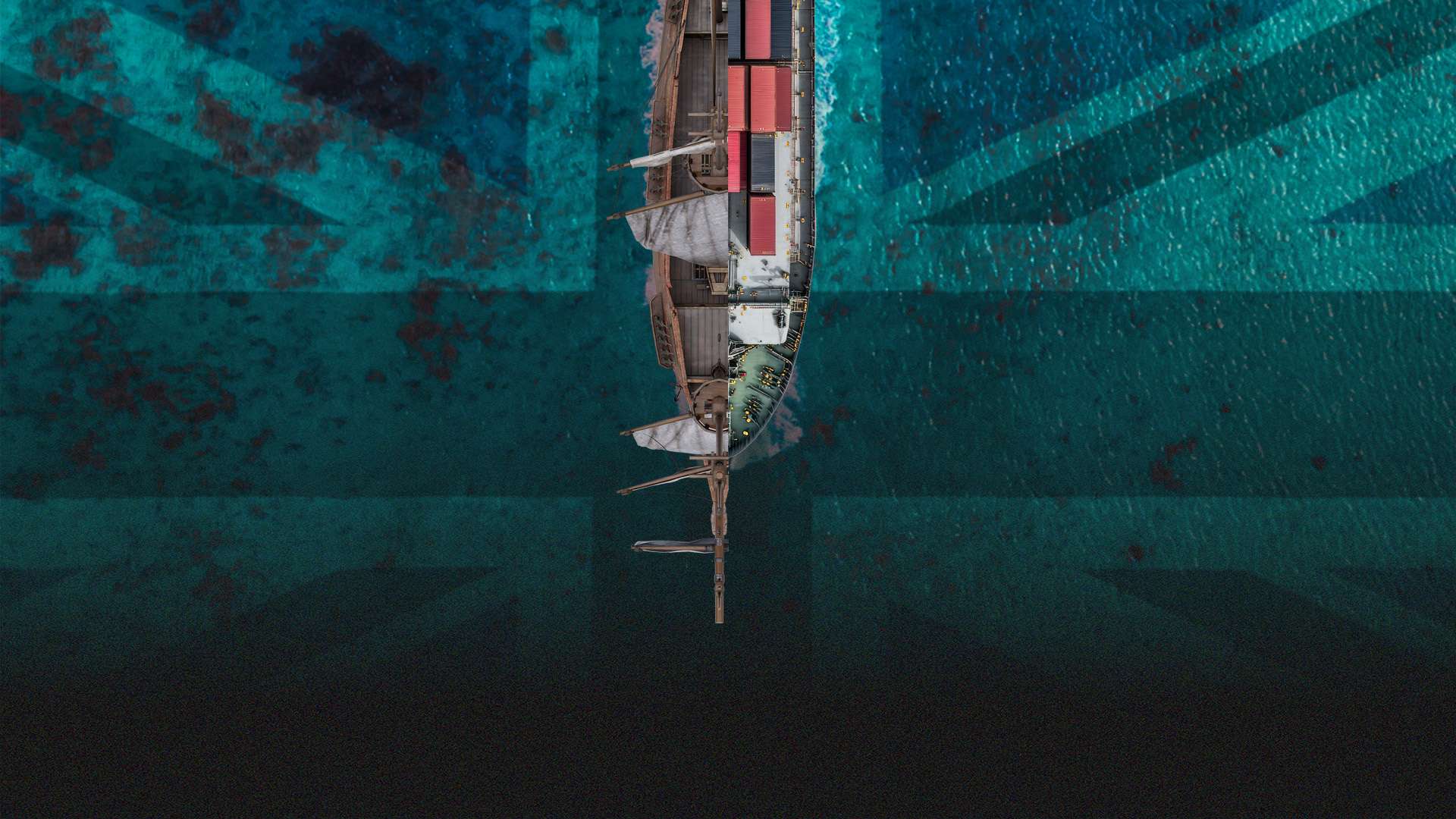The Drivers of Prosperity

Reading this article in the comfort of civilization, from a sophisticated tech device, not having to worry about whether you’ll be able to afford dinner later today, or whether you’ll sleep in safety, it might seem natural to assume that this level of comfort is the natural state of Homo sapiens.
Nothing could be further from the truth. When we began farming 10,000 years ago, life as a Homo sapiens was dreadful. You’d wake up in the morning to work for 14 hours in the fields; you’d be more likely than not to experience crippling spinal deformations, and half your kids would be dead before they reached 5 years of age.
With this grim backstory in mind, the most important question in history becomes: What was it that allowed societies to escape subsistence existence? What are the drivers of Prosperity?
Looking at GDP per capita through history provides a startling view: before the Industrial Revolution began, we basically didn’t have economic growth. Said differently, before 1700, the day-to-day life quality of Homo sapiens basically hadn’t improved for 10,000 years.
The most important question in history thus becomes: What caused the Industrial Revolution? Why did it take off in Britain almost 100 years—more than three generations—before it started taking off in France and the rest of Europe and America?
Historians have produced a remarkable array of explanations. Some claim that it happened in Britain because of natural resources—that it was because it had more coal than other nations. Others say the fact that it’s an island prompted people there to build large fleets and become a seafaring power.
However, when looking across the world circa 1700, neither of these factors were unique to Britain. China had vastly larger coal reserves than Britain. Furthermore, the Spanish, the Dutch, and the Japanese had all developed equal or superior seafaring capabilities.
So, what was really unique to Britain circa 1700? Above anything else, Britain was at this point the only place in the world with Rule of Law. It was the sole country where a common businessman could go to court with a nobleman, and expect a fair trial.
The significant differences between England and France were described by Voltaire during his exile in England in the early 1700s. In his Letters on the English, he observed the unprecedented combination of religious tolerance, limited monarchy, and merchant respect that distinguished English society:
He explained how commercial freedom and commerce overrode centuries-old biases: “Go into the London Stock Exchange, a place more respectable than many a court; you will see representatives of all nations gathered there for the benefit of mankind. There, the Jew, the Mahometan, and the Christian deal with each other as though they were of the same religion, and give the name of ‘infidel’ to none but bankrupts.… If there were but one religion in England, there would be a danger of tyranny; if there were but two, they would cut each other’s throats; but there are thirty, and they live in peace and happiness.”
He explained how the English were unique in having been able to place limits on government: “The English are the only people on earth who have been able to prescribe limits to the power of kings by resisting them.”
He explained the importance and respect of trade and commerce: “In France, the tradesman is considered nothing; in England, the tradesman is considered someone of importance.”
Why did the Rule of Law enable the Industrial Revolution?
Throughout history, finding more raw resources alone seldom leads to consistent growth. To leverage resources in a productive way, you need a way to refine and develop them. For instance, Portugal and Spain gathered vast amounts of precious metals from finding the New World; Spanish colonies produced around 80% of all the world’s silver supply between 1500 and 1800. However, Spain ended up quickly losing out to the Netherlands, France, and England, and ultimately became a laggard to the Industrial Revolution.
The key differentiator is not the resources itself, but whether you have the tools and technology required to make productive use of them. But to invest in tools and technology, you must believe in the future. Businesses won’t invest precious capital into a risky project if they’re unsure whether they’ll even be able to reap the rewards if the project succeeds.
This connection between legal security and investment played out dramatically in England’s early industrial projects. While entrepreneurs in continental Europe and the rest of the world often saw their innovations appropriated by nobles, the crown, or larger incumbents, English inventors could rely on consistent legal protection. Said simply, in England, you were allowed to believe in the future. But what made English law different?
As it turns out, it really was about decentralization. Circa 1700, England was essentially the only country in the world that had:
Constitutional limits on centralized power: starting humbly with the Magna Carta in the 1200s and evolving into the Bill of Rights in the late 1600s, English monarchy became uniquely constrained. Unlike the royal absolutism that was the standard in the rest of the world, there was a real decentralization and constraint on government power.
Common Law: such law was based on precedent from actual cases, rather than a specific code developed by the political or military leaders of the day. Common Law is essentially a decentralized, bottom-up version of Civil Law, which was the legal model used in the rest of the world. This bottom-up development made Common Law more responsive to commercial needs and more resistant to arbitrary change.
Competitive legal forums: England developed a uniquely competitive legal marketplace. Merchants could choose between royal courts, merchant courts, ecclesiastical courts, and local courts. This competition drove innovation in commercial law and forced courts to maintain reputations for fairness—a merchant could simply take future business elsewhere if a court showed bias.
Naively, you would assume that the historical importance of decentralization and competition would guide us in our modern preferences on institutions. Unfortunately, anywhere you look, there’s a real erosion of these principles. Comparing 2025 to only 15 years ago, some of the major developments include:
Europe has moved from a decentralized federation of 27 countries into a unitary block with incredibly centralized power in Brussels. The most striking example of this is when the “European Court of Justice” (ECJ) performed a power grab in 2018–2019, where it arbitrarily expanded its scope to supervise national courts across all EU member states, even in cases not directly involving EU law. Essentially overnight, the democratic rights of anyone living in the EU were now limited to whatever the ECJ deems as being within the bounds of EU law or standards. As recently as June 2024, the EU was close to effectively banning Signal.
Substantial progress towards a global minimum tax rate, led by the OECD.
Media control: the US government now regularly pressures news and distribution outlets to suppress stories with possible political implications.
So, what’s the alternative to this? Three centuries ago, Rule of Law—enabled by decentralization, constraint on government, and competing arbitration providers—allowed us to escape subsistence for the first time in history. Today, a new type of governance structure might provide us with a similar giant leap forward.
The first company that aims to disrupt the way governments work is situated in Honduras. Próspera—where I work as the VP of Growth—is the first for-profit governance provider in modern history. Próspera has created an enhanced economic zone where it enjoys the highest levels of legal autonomy in the world, enabling it to create a full-stack legal framework from scratch. Some of the features of the zone include:
Massive decentralization of rule of law: companies can choose to work under any OECD regulation, including any combination of OECD rules, or under completely new legal codes of their choice, effectively expanding the scope of viable regulation frameworks from a few dozen into many thousands.
Massive decentralization of application of law: instead of a centralized court, companies by default go to alternative arbitration where there’s a wide marketplace of competing providers.
Exit: Instead of the government trying to box you in via wealth taxes, exit taxes, and citizen-based taxation, Próspera explicitly encourages exit from its own system as a way to check its power, by allowing land owners to “fork” Próspera and create their own governance areas within Próspera.
Every new paradigm starts small—300 years ago, the concept of law applied equally to everyone was foreign. Today, the idea of decentralized for-profit governance providers is an n=1 phenomenon. But we’re betting that in a few generations, it will be the main form of governance, and that it will drive global prosperity and freedom to new heights.
The post The Drivers of Prosperity was first published by the Foundation for Economic Education, and is republished here with permission. Please support their efforts.



